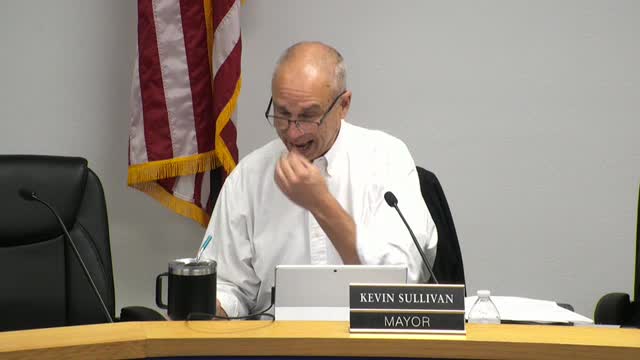Property owner asks Lago Vista to disannex lakeshore parcel, cites lack of city services and enforcement
Get AI-powered insights, summaries, and transcripts
Subscribe
Summary
A Lago Vista property owner requested that the city remove her 13.159-acre parcel from city limits, saying she receives no municipal services, has borne the effects of nearby development and experienced administrative delays while seeking relief.
Property owner Diane Chonyapin appeared at the Jan. 16, 2025 Lago Vista City Council meeting to ask that the city disannex her 13.159-acre parcel at 18315 Lakeshore Boulevard.
Chonyapin told council she receives little or no city services at that address, that road maintenance and other municipal services are infrequent, and that neighboring development has created watershed and access problems that she says the city has not enforced or remedied. She said she originally filed a petition for disannexation in August 2024 but experienced delays and miscommunication with staff and that a submitted fee and paperwork were lost before the petition ultimately was placed on the Jan. 16 agenda.
"I am asking to be released from the Lago Vista municipality for cause and with no harm done to the city," Chonyapin said. She told council the property was in a portion of the community where other lots are outside the city limits and argued the city receives taxes from her parcel but provides little direct service in return.
City attorneys and staff briefed council on the legal framework for disannexation. City counsel noted that under Texas Local Government Code section 43.142 a home-rule municipality may disannex territory "as may be provided by the charter of the municipality," and that state statutes set procedural rules that influence when and how annexation and disannexation may be challenged. The city attorney also noted case law that has confronted parcel-by-parcel disannexation requests and the legal complexities that can arise when an annexation is older than the validation window in state law.
Council did not render a final decision at the meeting. Staff and council acknowledged the administrative issues the petitioner described; council asked staff to follow up, to ensure the petition and fees were properly recorded, and to return with a clear process and timetable for council consideration.
Ending: The council asked staff to document the petition, confirm receipt of fees and paperwork, and advise on applicable statutes and precedents before placing a final disannexation recommendation on a future agenda.
